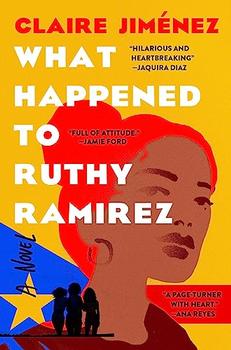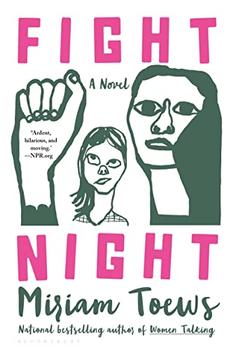Summary | Excerpt | Reading Guide | Discuss | Reviews | Beyond the book | Read-Alikes | Genres & Themes | Author Bio

A powerful debut novel that's "hilarious, heartbreaking, and a**-kicking" (Jamie Ford), of a Puerto Rican family in Staten Island who discovers their long‑missing sister is potentially alive and cast on a reality TV show, and they set out to bring her home.
The Ramirez women of Staten Island orbit around absence. When thirteen‑year‑old middle child Ruthy disappeared after track practice without a trace, it left the family scarred and scrambling. One night, twelve years later, oldest sister Jessica spots a woman on her TV screen in Catfight, a raunchy reality show. She rushes to tell her younger sister, Nina: This woman's hair is dyed red, and she calls herself Ruby, but the beauty mark under her left eye is instantly recognizable. Could it be Ruthy, after all this time?
The years since Ruthy's disappearance haven't been easy on the Ramirez family. It's 2008, and their mother, Dolores, still struggles with the loss, Jessica juggles a newborn baby with her hospital job, and Nina, after four successful years at college, has returned home to medical school rejections and is forced to work in the mall folding tiny bedazzled thongs at the lingerie store.
After seeing maybe‑Ruthy on their screen, Jessica and Nina hatch a plan to drive to where the show is filmed in search of their long‑lost sister. When Dolores catches wind of their scheme, she insists on joining, along with her pot-stirring holy roller best friend, Irene. What follows is a family road trip and reckoning that will force the Ramirez women to finally face the past and look toward a future—with or without Ruthy in it.
What Happened to Ruthy Ramirez is a vivid family portrait, in all its shattered reality, exploring the familial bonds between women and cycles of generational violence, colonialism, race, and silence, replete with snark, resentment, tenderness, and, of course, love.
The story weaves back and forth in time, narrating life before and after Ruthy's disappearance. The narration is predominantly first-person, told from the perspectives of all three sisters and their mother. This could have become confusing, but author Claire Jimenez gives each of the women a distinct voice, allowing the reader to easily keep track of whose viewpoint we're following at any given moment. While the climax veers into melodrama reminiscent of a soap opera, the novel remains sensitive to the characters and their struggles. As such, it never loses sight of its ultimate goal: to give voice and humanity – flaws and all – to missing people from minority groups, too often relegated to mere statistics...continued
Full Review
(548 words)
This review is available to non-members for a limited time. For full access,
become a member today.
(Reviewed by Callum McLaughlin).
The number of active missing persons cases in the U.S. has declined steadily since 1997. This is due in large part to improvements in connectivity and communication, with cell phones and other handheld devices making it considerably easier to track a missing person's potential whereabouts. While this decline is cause for celebration, it is important to note that in the U.S. alone, around 600,000 people are reported missing annually. The great majority of these cases are resolved quickly, often within hours, but a few thousand remain unresolved each year. There are currently over 22,000 open missing persons cases in the U.S., according to the US Department of Justice's National Missing and Unidentified Persons System. Author Claire Jimenez ...
This "beyond the book" feature is available to non-members for a limited time. Join today for full access.

If you liked What Happened to Ruthy Ramirez, try these:

by Sarah Harman
Published 2025
"The missing boy is 10-year-old Alfie Risby, and to be perfectly honest with you, he's a little shit."

by Miriam Toews
Published 2023
From the bestselling author of Women Talking and All My Puny Sorrows, a compassionate, darkly humorous, and deeply wise new novel about three generations of women.
Nearly all men can stand adversity, but if you want to test a man's character, give him power.
Click Here to find out who said this, as well as discovering other famous literary quotes!